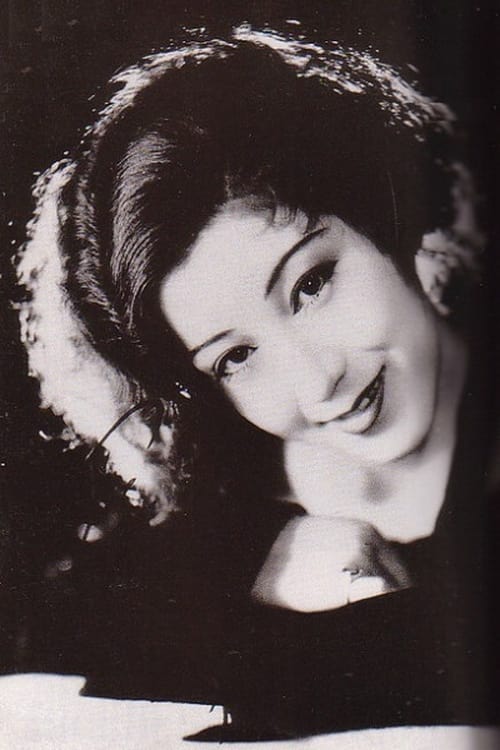
Takako Irie
Nacimiento : 1911-02-07, Tokyo, Japan
Muerte : 1995-01-12
Historia
Takako Irie (入江 たか子 Irie Takako, 7 February 1911 – 12 January 1995) was a Japanese film actress. Born in Tokyo into the aristocratic Higashibōjō family (her birth name was Hideko Higashibōjō (東坊城 英子 Higashibōjō Hideko)), she graduated from Bunka Gakuin before debuting as an actress at Nikkatsu in 1927. She became a major star, even starting her own production company, Irie Productions, in 1932. One of Kenji Mizoguchi's silent film masterpieces, The Water Magician, was produced at that company with Irie starring. She appeared in many advertisements, as well as on fans and other commercial goods. Irie was also the subject of a folding screen painting by Nihonga artist Nakamura Daizaburō, which appeared in the 1930 Teiten (Imperial Exhibition), and which is today in the collection of the Honolulu Museum of Art; toy dolls were also produced based on this image.
In the postwar period, Irie became known as a "ghost cat actress" (bakeneko joyū) for appearing in a series of kaidan (ghost story) movies. One of her late memorable roles was in Akira Kurosawa's Sanjuro, where she plays Mutsuta's wife, the lady who warns Sanjuro (Toshirō Mifune) that "the best sword stays in its scabbard".
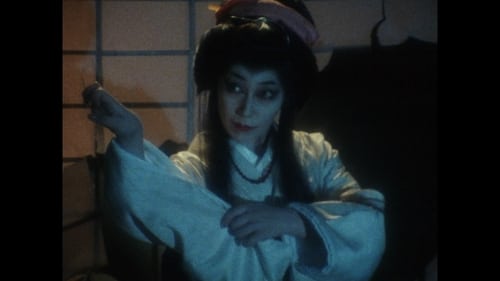
Akiko Ryuzoji
In the year 198X, a young screenwriter, Ryohei Shimura, has been in a slump lately. Then an opportunity arises. He is asked to write a script for the comeback film of Akiko Ryuzoji, the legendary beauty who was known as Japan's Cleopatra. Ryohei met Akiko right away, but he couldn't believe his eyes. Akiko was young and good-looking, even though she was already an old woman. Ryohei moved into Akiko's house to work on his scenario. A film director, Mizumori, who lives with Akiko at the mansion, warns Ryohei, “Don't sleep with Akiko,” he says. In fact, Ryohei was chosen for the job for a surprising reason...

Shino
After noticing in the news there was a fire in an old canal town, Eguchi recalls visiting there a decade ago as a university student.
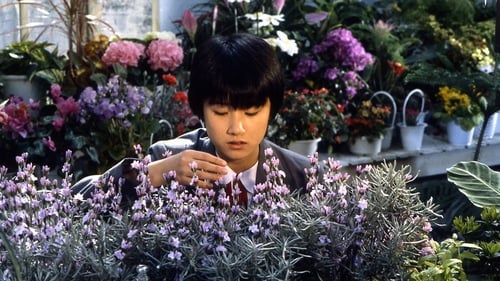
Tatsu Fukamachi
Kazuko Yoshiyama, una muchacha de instituto, descubre de pronto que tiene la capacidad de viajar en el tiempo.

Chizu Igarashi
This time, Kousuke investigates a murder in a hospital. The murderer leaves misleading evidence to divert Kousuke's attention on the case. Suspicion and doubt clouds Kousuke's mind.
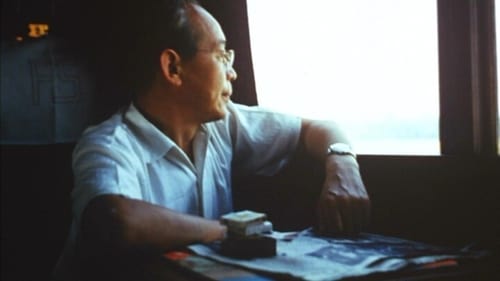
Película que repasa la vida y obra del realizador japonés Kenji Mizoguchi, utilizando para ello fragmentos de sus películas, entrevistas y otro tipo de información.
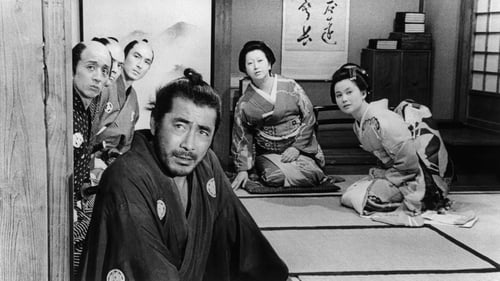
Mutsuta's wife
En el Japón de la era Tokugawa, un grupo de nueve jóvenes samuráis está decidido a acabar con la corrupción reinante y a acabar con todos los que están relacionados con ella. Consiguen el apoyo del inspector de policía Kikui y se preparan para llevar a cabo su plan. Poco después, aparece Sajuro, un personaje salido de entre las sombras, que empezará a actuar y a poner orden en medio del caos.

This most celebrated all-star movie version of the popular series features Tsukigata Ryunosuke as Mito Komon, the sage who wanders the countryside rectifying government corruption along with his faithful attendants Suke and Kaku.

A remake of Kaidan Saga yashiki (1953).

Court Lady Fujinami
A power struggle in the fief of Okazaki causes the death of Namiji, a nobleman's daughter. As her fiancé seeks revenge, he finds Namiji's cat helping him. Co-starring Shintarô Katsu and Takako Irie.
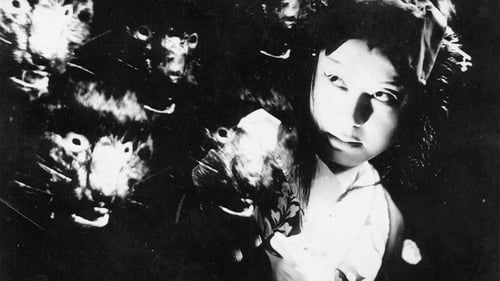
A kabuki actress is murdered. Her pet cat laps its mistress's blood and becomes a demon possessed by the vengeful murder victim.

The Great White Tiger Platoon was part of the Aizu clan's last ditch efforts to stop the advance of Imperial troops after the fall of the Tokugawa Shogunate. Meant to be a reserve unit as it was made of the young, 16-17 year old sons of Aizu samurai. Their story is one of the great tragedies of the Boshin War (1868-1869) as they were called into action. Getting cut off from the main body of their platoon, a group of 20 from the 2nd squad retreated to Iimori Hill, where they looked down upon fires surrounding Aizu Castle and thinking that the castle has fallen and all is lost, they choose to die as samurai by committing seppuku. A superb rendition of this true story that shows the true honor of the samurai.

The Lord of Okazaki is killed by his brother-in-law. Although the Lord's widow bears a child, she is also killed. Then, a ghost cat begins stalking in the castle.

Okoyo, the mistress of Lord Arima, fears that she is being replaced by a younger woman named Otaki. In a fit of jealousy, she kills the younger girl. The dead woman's cat licks her blood and becomes a demon, seeking revenge on Okoyo
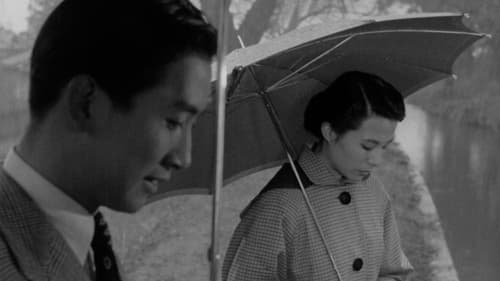
Un hombre triste y preocupado, Reikichi Mayumi (Masayuki Mori), encuentra un nuevo trabajo cinco años después del final de la Segunda Guerra Mundial. Él escribirá cartas de amor de otras personas. Sus ideas sobre el amor y sus principios personales serán probados cuando se reencuentra con su ex novia, Michiko (Yoshigo Kuga), una mujer con un pasado oscuro marcado por la guerra.

Otoyo-no-kata
A woman loses her son through an evil conspiracy and commits suicide. Shortly afterwards a ghost cat begins haunting the conspirators. This is Takako Irie's first bakeneko (ghost cat) movie; it started a Daiei cycle which was very popular at the time in Japan.

Kôfuku eno shôtai - Invitation to happiness

A hospital melodrama where the conflict between love and friendship rules the faith of the protagonists.

After learning that he has accidentally killed a man in a fight, Unokichi must look after the man's pregnant widow.

Based on a short story by Dazai Osamu, produced under the national film law. The film's hero falls in love with the youngest daughter of a family he is visiting to arrange an engagement for his friend who has been drafted to fight in the war.
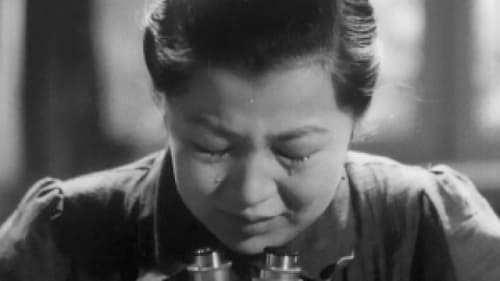
Noriko Mizushima, dorm mother
Durante la Segunda Guerra Mundial (1939-1945), varias mujeres trabajan en una empresa de instrumentos de óptica. Bajo el control paternalista del director de la fábrica, luchan para conseguir la máxima calidad en difíciles condiciones. A pesar de las enfermedades y los problemas con los que se enfrentan, viven entregadas a su trabajo y a la causa de su país. El jefe de equipo, cuya mujer se está muriendo, se esforzará por dar ejemplo a los demás mostrando una voluntad de acero.

A 1942 film.

The premature death of a young mother serves as inspiration for her husband and son.

Set in Qingdao, China, a Japanese company locates an office there and begins work and cooperation with a local Chinese company for business. Many Japanese engineers also move to China, with their families, for the company in order to construct a canal. There are young Chinese resisting the Japanese in this area.

Makiko
What is marriage? Young couple in match-making wanted to know before they decide. They visited married couples of sisters and brothers. Love comedy in 1942.

Chiyono - widow
This epic depicts the battle between Uesugi Kenshin and Takeda Shingen. The focus of the story is the struggle by the unit leader in charge of the main supply wagons and the supply troops to transport materiel to the Uesugi army. To this are added episodes involving an itinerant woman.

OSHINO, the beautiful daughter of restaurant owners, is in love with SHIRASAGI the painter. But there is another young man, the son of a moneylender family, who is desperately in love with Oshino...

Yukiko
Adaptation of a novel by Nobuko Yoshiya that was serialized in "Shufu no tomo" between 1939 and 1940.

Jurobei, a kaisen tonya (wholesaler in port) in Awa, was wronged and killed on the day of the Dance Festival by the evil merchant & the chamberlin. His brother (Kazuo Hasegawa) vowed vengeance on the day of his brother's death. So every year the villains are worried during the Awa Dance Festival (which is part of the Obon festival), but nothing has ever happened, until seven years later...

When Sentarô’s father is killed by a drunken samurai, Sentarô avenges him. His deed puts him on the run and leaves his sister behind. While running from both the authorities and the assassins, Sentarô meets with the beautiful travelling-actress Oshima who takes him under her protection.
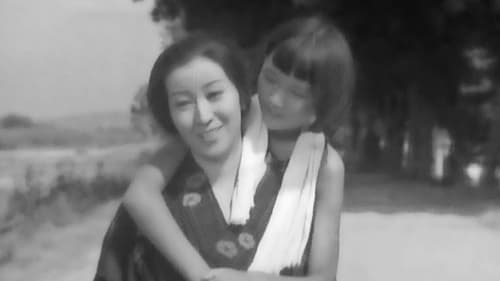
Tobiko Haseyama
Two young girls, Nobiko and Tomiko, go to the same school. The less fortunate girl Nobiko is one of the top students, while the rich girl Tomiko is not. At one time Tomiko's father was quite fond of Nobuko's mother.

A colourful study of theatrical life. Two acting troupes vie for the Kyoto market during the Genroku Era. Tojuro, an extremely popular actor, feels the limits to his acting when he sees his rival troupe put on a new type of play featuring its star, Nakamura. He has the famous Chikamatsu write a new play but cannot get used to the character he is to play in it.
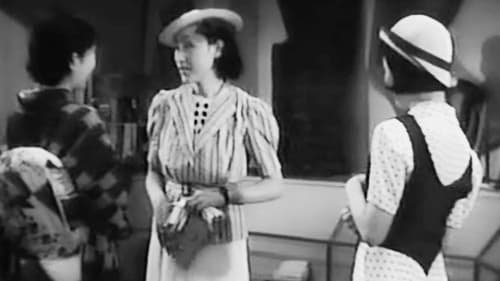
Toyomi
Part 2 of a 2-part romance (fist part - Kafuku zempen) based on a story by noted author Kikuchi Kan. In the second half, we discover that Toyomi is pregnant -- and while Shintaro and Yurie are on their extended honeymoon, she bears his child, a girl named Kiyoko. She is supported in adversity by Michiko -- and gets considerable moral support from not only her own mother but also from Shintaro's mother and siblings. Even more surprisingly, Yurie strikes up a friendship of sorts with her. When Yurie learns that the child is Shintaro's, she convinces Toyomi that it would be best to let Shintaro (and her) raise Kiyoko, so Toyomi can get on with making a proper life for herself. Tearfully, Toyomi agrees. Sometime later, Michiko goes to visit Toyomi -- and sees her at work, as a kindergarten teacher.
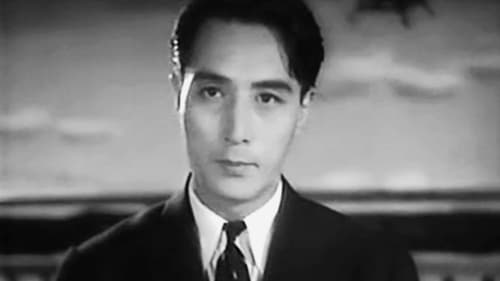
Toyomi
Part 1 of a 2-part romance based on a story by noted author Kikuchi Kan. The central character here is Toyomi (played by Takako IRIE, star of Mizoguchi’s "Water Magician), a rich young woman in love with Shintaro (Minoru TAKADA), a rich young man. Unfortunately, Shintaro’s father is in the process of arranging a marriage for him with Yurie (Chieko TAKEHISA), the scion of an even wealthier family. In order to avoid this, the two young lovers flee to Tokyo to live together. When Shintaro comes back to proclaim his intent to marry Toyomi, his father browbeats him into attending the long-arranged marriage meeting with Yurie. While Shintaro is back home, Toyomi goes on a vacation trip with her closest chum, Michiko (Yumeko AIZOME). At a class reunion, Toyomi is to distressed (at not having heard from Shintaro for so long), she doesn’t go out on the town with her classmates. Michiko, however, runs into Shintaro and Yurie (also out on the town), and pulling him aside, demands an explanation.

Kayo and Kuniko graduated from girls' school together and are as close as sisters. Kuniko's fiancé, Minakami, feels something that attracts him deeply towards Kayo. On the other hand, Kayo prays for the happiness of her best friend and marries a very ordinary man. However, at one point, this mediocre but increasingly ferocious husband died in an accident ... A triangular love story develops depicting a woman's heart that sways between love and morals. Based on a novel by Nobuko Yoshiya, there were originally two parts to the film (If Spring Comes & Fall Once Again), both supposed to be 85 minutes, but apparently what we have now is this 103-minute amalgam of the two.

The prewar film Haha no kyoku (Mother's Melody, 1937) is known for its place in Japanese film history as one of the top three melodramas as well as for its authorship: Yamamoto Satsuo is an auteur not usually associated with filming melodramas. Yamamoto made the film right after he moved, along with his mentor Naruse Mikio, to the Toho film company. A number of subsequent postwar mother's films adopted some of its essences, making it a genre-defining moment in Japanese cinema. This great melodrama is atypical of Yamamoto's output, much of which deals with political corruption and inequities within social institutions and offers a strong anti-establishment appeal.

Japanese domestic drama.

Prewar jidaigeki starring Denjiro Okochi

Ohama
The sequel to the 1935 film Great Bodhisattva Pass

1930s Japanese film.

Michiko Nonoguchi, nurse
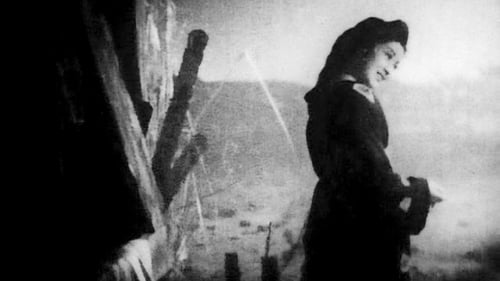
Producer
Taki no Shiraito is a very independent young woman with a famous water juggling act in a travelling carnival troupe. She falls in love with an orphaned carriage driver Kinya Murakoshi, and pledges to put him through law school in Tokyo. She always encloses money in her letters to him, until one hard winter there is no work to be found.

Taki no Shiraito
Taki no Shiraito is a very independent young woman with a famous water juggling act in a travelling carnival troupe. She falls in love with an orphaned carriage driver Kinya Murakoshi, and pledges to put him through law school in Tokyo. She always encloses money in her letters to him, until one hard winter there is no work to be found.

The second part of the melodrama based on the novel Les Misérables by Victor Hugo, the action of which is transferred to the era of the Meiji Revolution. The film has not survived.

The first part of a fascinating melodrama based on Victor Hugo's Les Misérables, the action of which is transferred to the era of the Meiji Revolution. The film has not survived.

Directed by Tomotaka Tasaka.

Workwoman
While returning by boat to Japan, Yoshie Fujiwara meets a rich woman who suggests him to become a singer thanks to an impresario friend of hers.

Hiroko Kumikawa

girl in the elevator
The Morning Sun Shines is a fiction-documentary film by Kenji Mizoguchi and Seiichi Ina. The film is a combination of a drama about a reporter, and documentary footage about newspaper production. Only 25 minutes of footage has survived.

Directed by Kenji Mizoguchi.
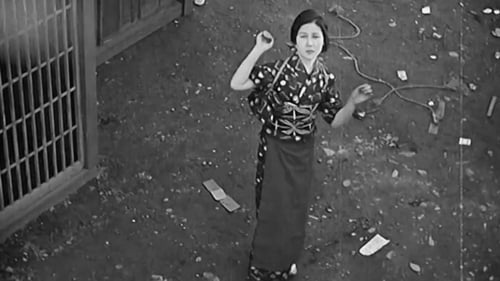
A classic melodramatic love tragedy addressing social inequality in feudal Japan, depicted in Kenji Mizoguchi's typical style. The nostalgic scenes of 1920s Tokyo provides a valuable visual experience set against the background of the title song, "Tokyo March." (Sadly, only 24 minutes of the film now survive.)















